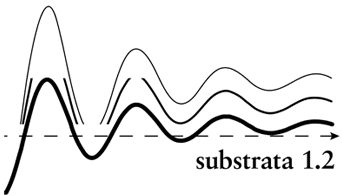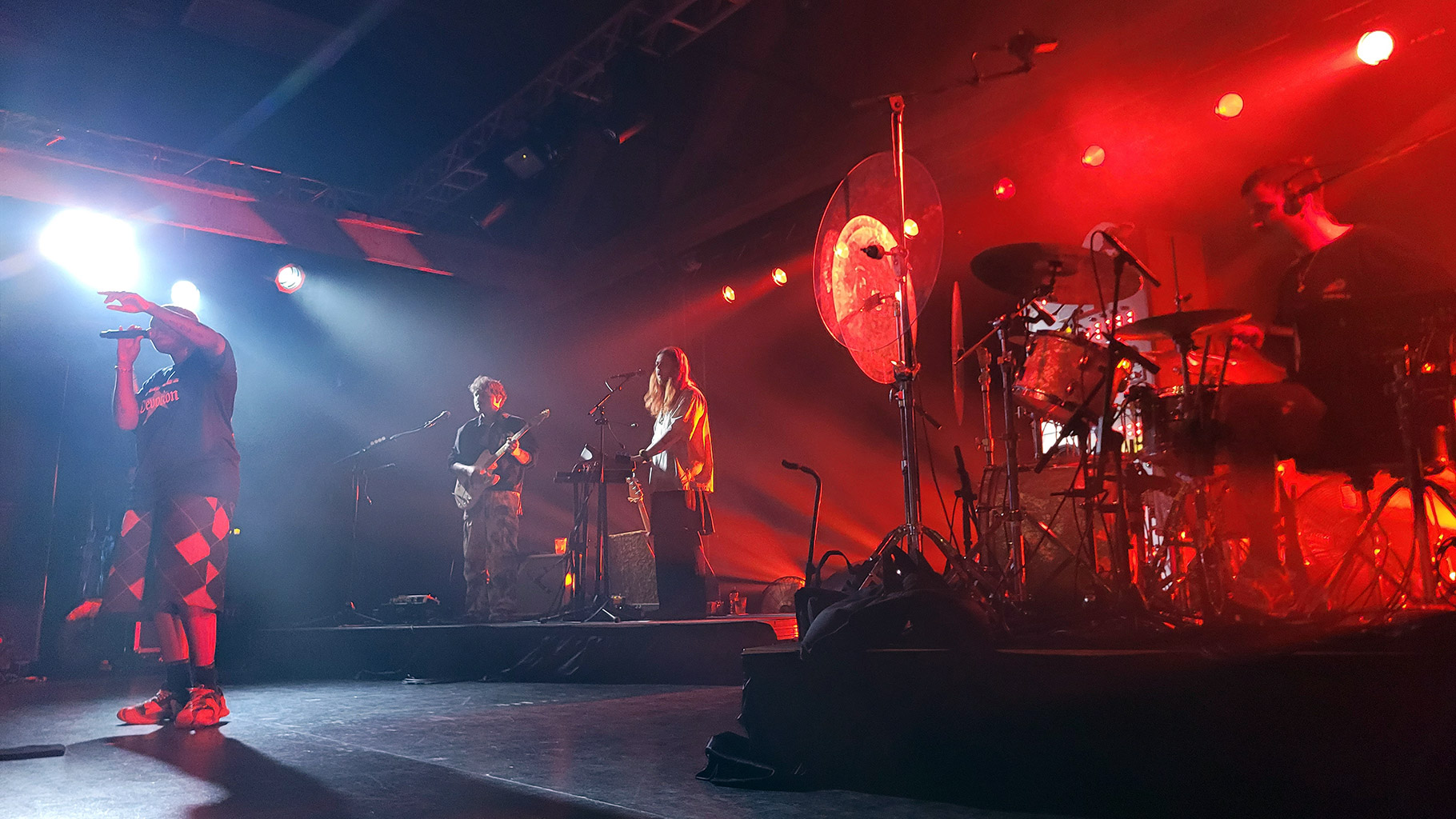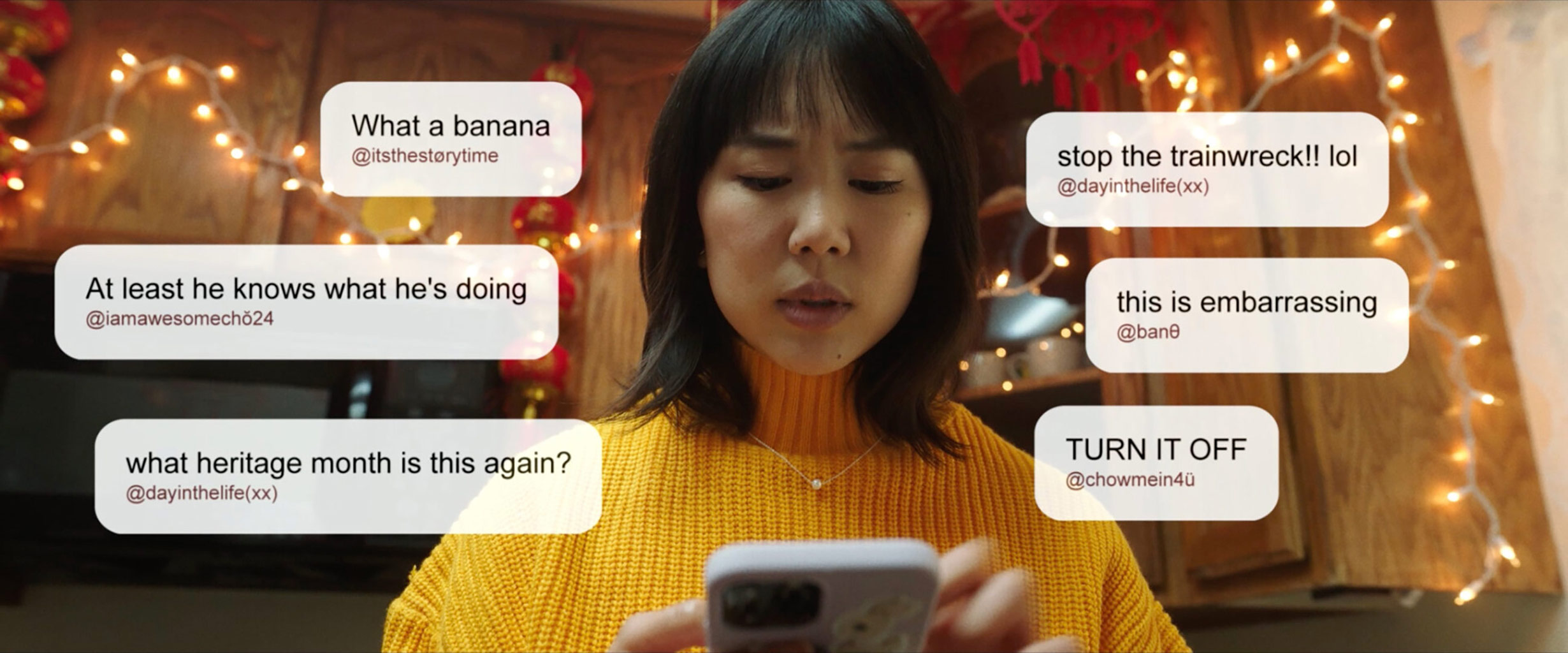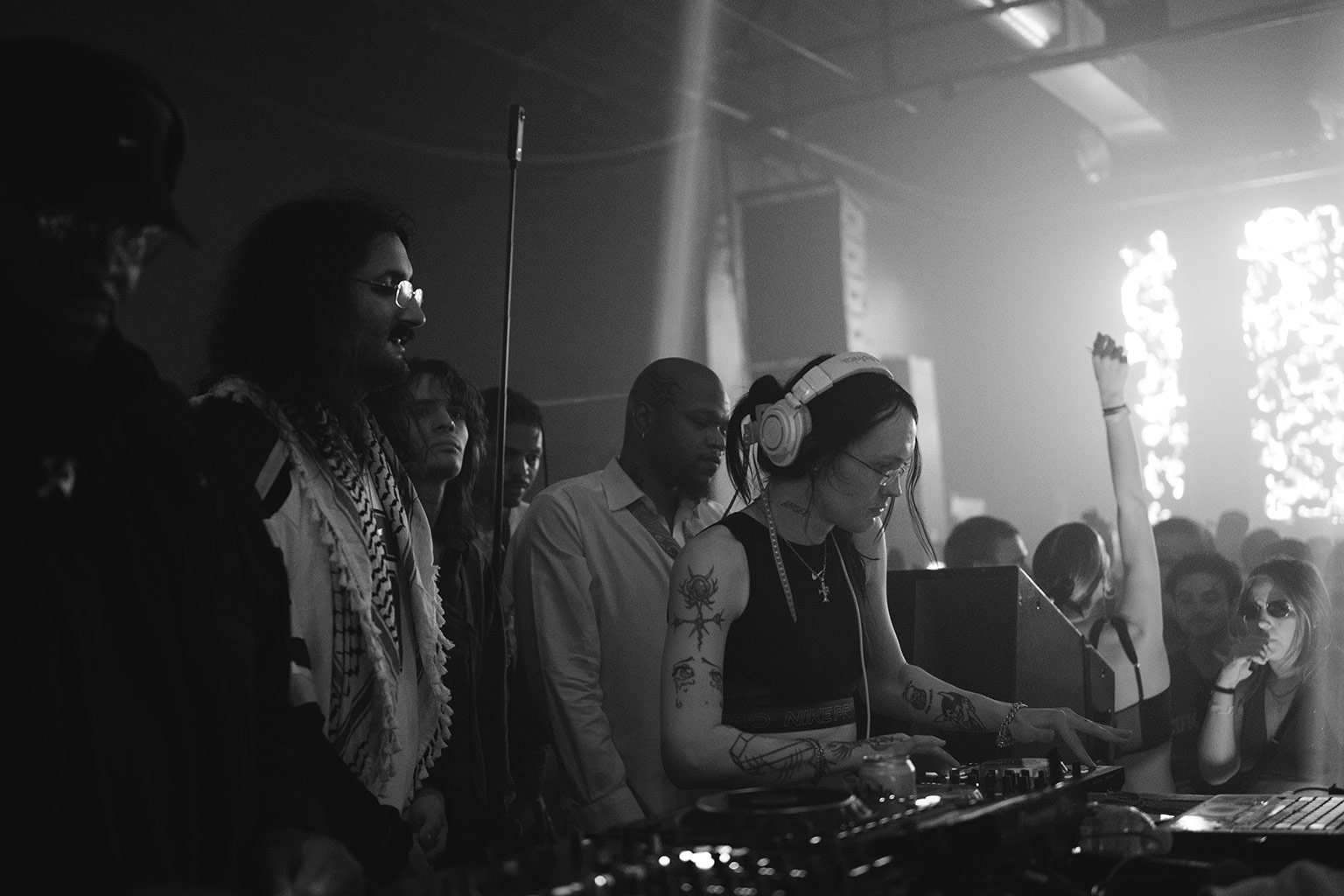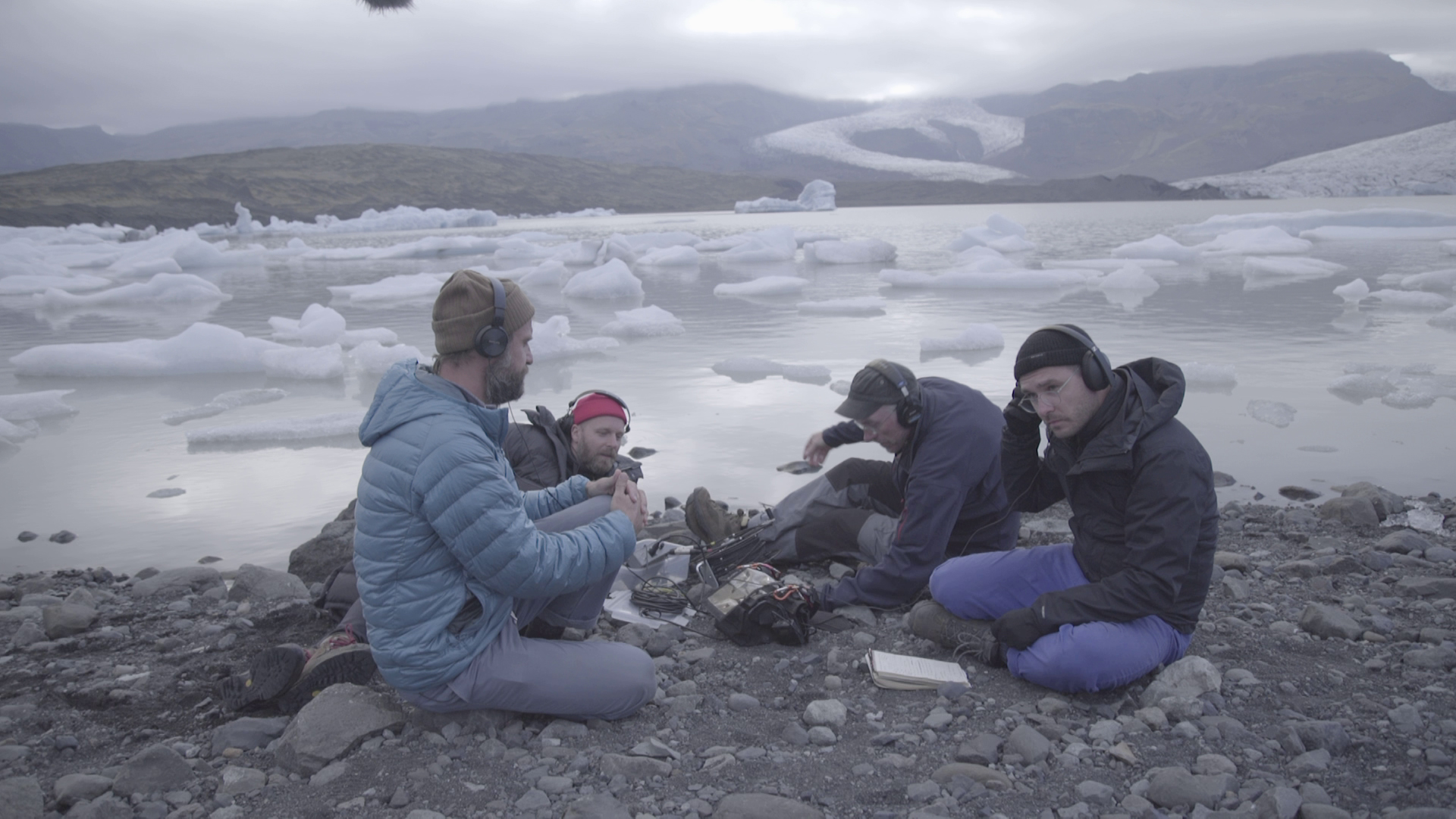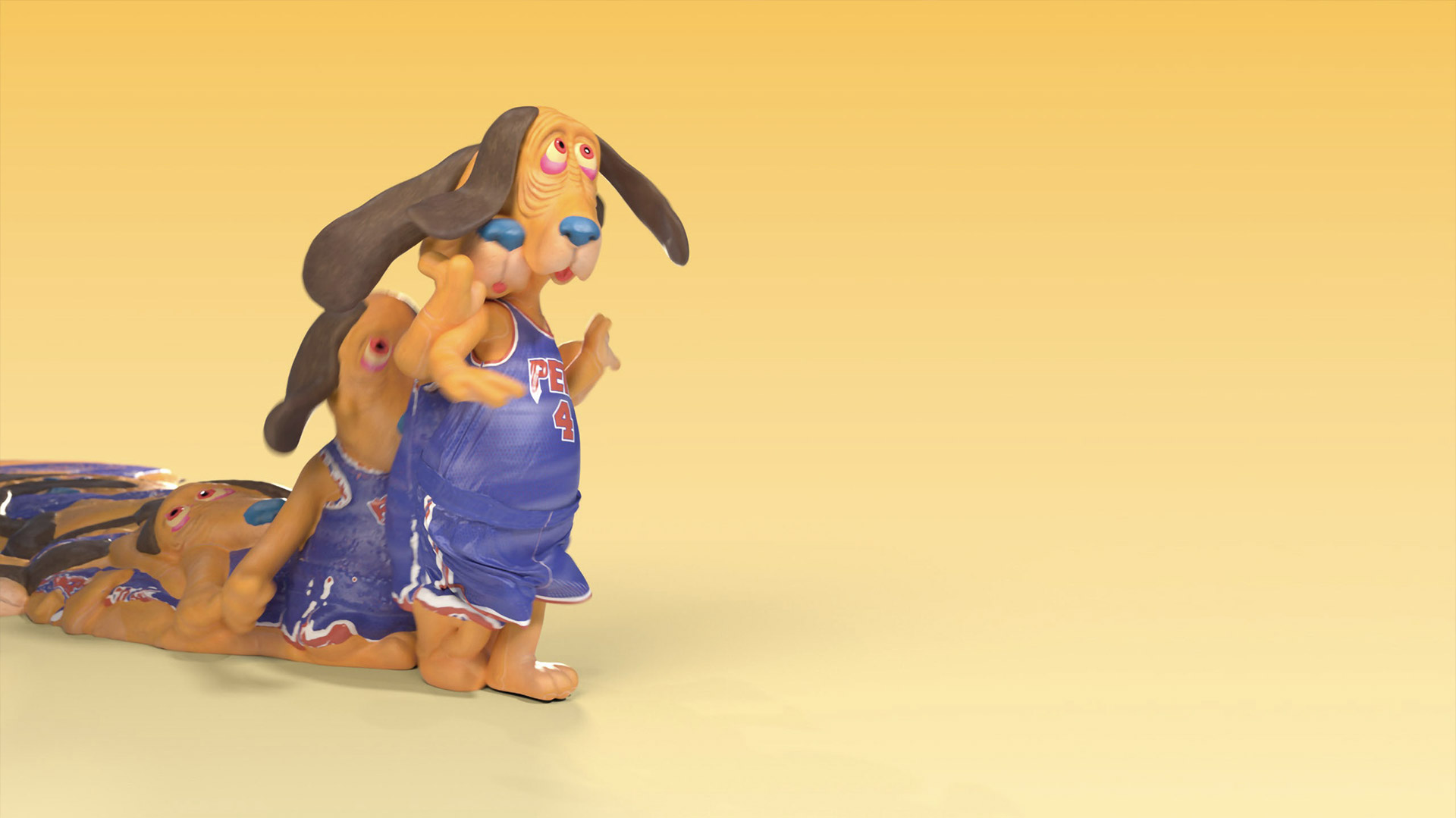SEE OUR REVIEW OF SUBSTRATA FESTIVAL 1.2
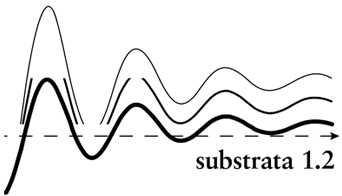
Anticipated Highlights from Substrata 1.2, 2012
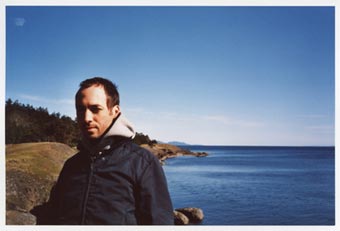
Tim Hecker is about as acclaimed as they come in this musical realm. In 2011, he was named as one of NPR’s Top 100 Composers Under 40. 2011’s full-length release Ravedeath, 1972 was released to wide critical acclaim, including praises from this website, and was nominated for Canada’s Polaris Music Prize.

Lawrence English is a prolific composer, multimedia artist and curator from Brisbane, Australia. He is one of the leaders in Australian sound art and experimental music and is about as intertwined as possible with the musical community there.
Interconnectivity… seems persistently ingrained in Substrata: everything flows and happens in a rather organic manner.”
— Rafael Anton Irisarri
Like last year’s festival, Substrata Festival 1.2 is sold out (save for a remaining 20 tickets on Friday) — and 1.3 will most likely be sold out as well. Held in The Chapel at Good Shepherd Center in Seattle’s Wallingford Neighborhood, showgoers will have the rare opportunity to bear witness to the beauty of the weird, bizarre, and challenging sounds of a global set of musicians and artists.
In the Q&A below with Irisarri, he takes REDEFINE behind the scenes of the festival to offer insight into its goals and curatorial aspects, and what the grassroots efforts which set it apart from other festivals. This year’s festival takes place from August 3rd through 5th, in Seattle.
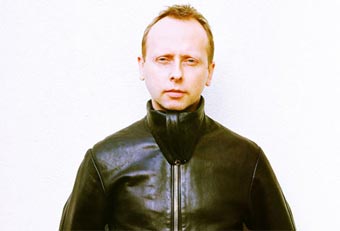
Scanner aka Robin Rimbaud is a profilic British experimental artist. His first works involved found conversations on mobile phones and police scanners, creating heavily layered, yet incredibly twisted soundscapes that turned common communication on its head.
SEE OUR REVIEW OF SUBSTRATA FESTIVAL 1.2
This is the second year of Substrata. What first led you to conceptualize and curate such a unique festival, and what were some of the major things you learned about how to make the whole thing work from the first year?
I started Substrata with this basic premise: to create an intimate space where the boundaries between performer and listener are blurry, where the invisible plane that exists between the audience and artists is constantly breached. In simpler terms: to provide a space that is both inspirational and stimulating. I’ve always been inspired and fascinated by simplicity; I find beauty in the space between words, sounds, and/or images.
Substrata is small and definitely not for everybody, and that’s fine. There are by far way too many festivals catering to the masses out there (while pushing corporate products/agendas). Substrata is not one of them. This is a completely DIY endeavor. This means no corporate sponsors, no city grants, etc. Substrata is truly a community supported event. I’m amazed by the kind of support we’ve gotten from the community (and by this I mean the advance sound music community in Seattle and beyond; about half of our attendees are coming from out-of-state) and people are willing to spend their hard-earned money on this event. It is humbling and I’m hoping people will find their experience worth the amount of hours we put up to make it all happen. I’m forever grateful to the artists, the staff, the supporters, attendees, and everyone who’s contributed to our fundraising campaigns.
You curate a festival that generally isn’t seen too often with very global individuals involved, with Oren Ambarchi and Nils Frahm last year; Tim Hecker, Scanner and Lawrence English this year. How are you able to convince these guys to fly all the way out to Seattle to play such an intimate and small setting?
For the last year’s edition, I reached out to close friends, collaborators, and artists that form part of my peer group or are in some way related to my own works as an artist. I feel that the curatorial is an art form by itself and I wanted to make it very personal and related to some of my own aesthetic.
For our second edition, I’ve kept a similar approach. Take, for example, Tim Hecker or Loscil (both performing this year): these are two artists I’ve been running into the same circles for years; we’ve either recorded for the same labels or played same events or worked together in some capacity. This epitomizes the interconnectivity that seems so persistently ingrained to Substrata: everything flows and happens in a rather organic manner.
INTERVIEW WITH RAFAEL ANTON IRISARRI CONTINUED BELOW
Substrata 1.1 Auditory Field Trip Documentation (w/ Biosphere)
How was the reception on the field recording workshop/hike from last year? What are your expectations for this year’s?
Last year’s field trip was perhaps the most rewarding part of the entire festival — artists and listeners learning from each other, creating interactions that are not possible during a performance. The attendance for the event was limited on purpose (as it is this year) in order to facilitate a meaningful exchange of ideas between participants. 1.1 was conducted by Geir Jenssen (Biosphere); his music has been an inspiration to me and on a personal level Geir is someone whom I consider a friend and a mentor. We are blessed with beautiful surroundings in the Pacific Northwest — areas that have provided a profound inspiration for some of my works (The North Bend, ORCAS). I wanted to create something that would give people the opportunity to live some of my own journeys. Couldn’t think of a better way of doing so, than in the company of an avid phonographer like Biosphere, who’s captured recordings in some very exotic locations for the past 20 years, including the Himalayas, the Arctic, and so many other wonderful places.
This year’s field trip will be conducted by Lawrence English and Robin Rimbaud (Scanner). Lawrence’s experiences as a phonographer are just mind-blowing. [He’s gone to] remote locations like Antarctica and Patagonia, whilst Robin’s approach to field recording is quite unique; this is an artist who borrowed his stage name from the device he used in his early recordings (police frequency scanner), picking up indeterminate radio and mobile phone signals in the airwaves and using them as an instrument in his compositions. I expect it to be fairly educational but at the same time fun and exciting, especially for those who are attending that have yet to hear the world as it sounds through headphones and microphones, without all the noise pollution we are exposed to on a daily basis. The first time I heard the world through a pair of headphones on a field recorder, I finally noticed all the things I was missing out from my auditory field — pretty much all the subtleties. Though the headphones, I could decide which sounds I wanted to focus all my attention: I could now hear every little nuance in great detail. A parallel can be made here: with the amount of over-consumption of media going on, and thus, constantly tuning out as a result, could the same exercise be applied to the way we consume any media and focus/unfocus our attention? How does it affect our perception of value (not financial value per se, but value in general, like in the way it has an impact on you, how it moves you)? Does this constant availability and tuning-out create a situation where the media/art becomes disposable — just like all the magnificent sounds I was filtering out from my ears in my example above?
The festival is partly performance and partly informative; what do you specifically want audience members to take away from coming to the whole festival?
As the name “substrata” implies, it is about subtle aesthetics that go beneath the surface and into deeper aural territories. One of the things that blew my mind last year at Substrata were some of the younger generations that came to both evenings. We are talking 16-year-olds and such, and I was very happy to have them exposed to things like Biosphere, Oren Ambarchi, etc. I certainly had somebody show me things like that when I was young too, and it really had an impact on me, so I can relate and I certainly encourage younger people to come to these kind of “leftfield” events. It’s a wonderful thing when a young kid discovers something deep — those things will last much longer in their musical formation than say something trendy like all this “brostep/edm”, “witch house”, etc, etc… I want to make people step out of their comfort zone and explore the world of sonic possibilities.
Do you have any plans of expanding on Substrata in the future?
Absolutely not; it would defeat its purpose.
SEE OUR REVIEW OF SUBSTRATA FESTIVAL 1.2
Ω

